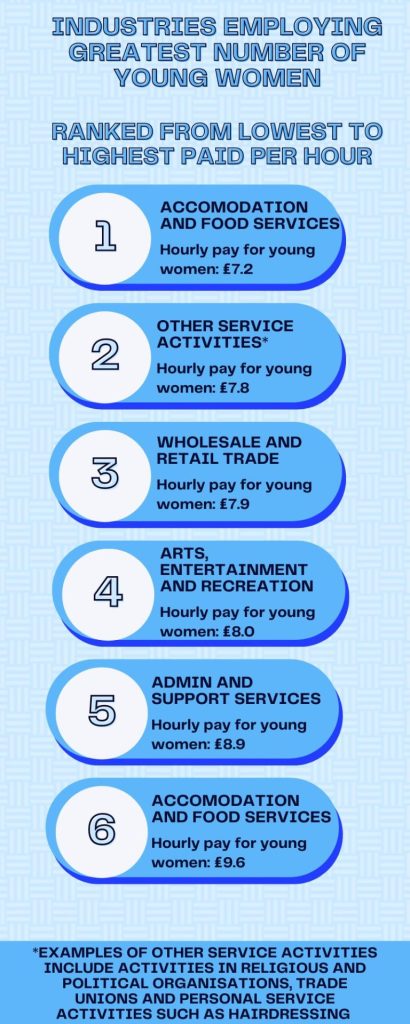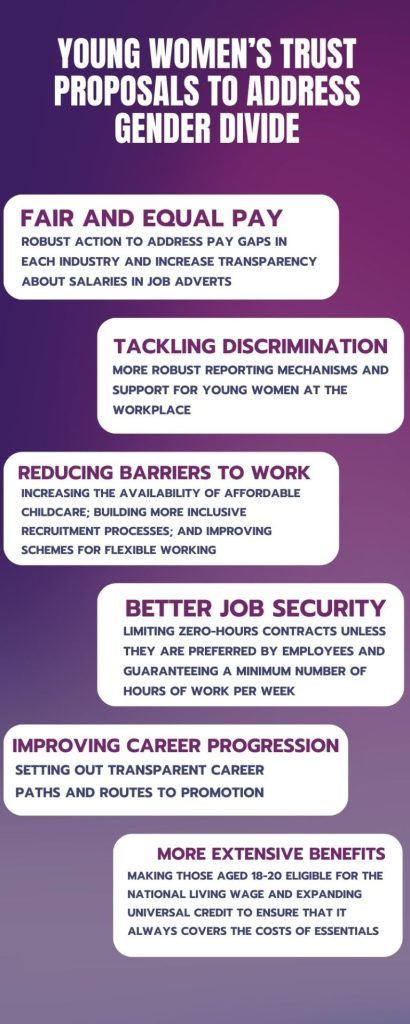The gender gap is widening amidst the cost-of-living crisis, a trend that is more pronounced in London compared to England and Wales as a whole.
The Young Women’s Trust, a charity promoting economic justice for young women, found that the cost-of-living crisis has created more financial hardship for young women than men across England and Wales in a study released last month.
This study found that the increase in the number of women aged 18-30 unable to afford food or essential supplies in the past year was four times greater than that of men.
Young Women’s Trust CEO Claire Reindorp said: “The cost of living is forcing young women to make some really impossible choices.
“Choices between heating and eating; between which debt you pay off; between unemployment and staying in jobs with abusive and sexist practices.
“We’ve had examples of horror stories where young women are facing discrimination at the workplace, insecure work and a sexist or abusive boss that is really hard to call out because they’re the one giving you work and choosing your gifts.
“In the worst cases, we’ve heard people saying to young women ‘I’ll give you shifts if you expose yourself to me’.”
The study revealed that young women in England and Wales earn £5,000 less on average than young men.
This figure is more pronounced in London, with women aged 18-29 earning £9,200 less on average than men – a figure which rose from £8,800 in 2018.
Fran Ferrier, Economic Empowerment Partnership Manager at Refuge, a charity supporting women who have experienced domestic abuse, said: “The cost-of-living crisis is having a real and measurable impact on the women Refuge supports.
“Finances have always presented a barrier to fleeing abuse, but the cost-of-living crisis has exacerbated this.
“It is pushing domestic abuse survivors into debt or further debt and significantly increasing barriers to leaving their perpetrator.
“The degree to which our frontline staff are now hearing that women are having to make the unimaginable choice between the danger of living with their abuser and the struggle of managing alone is staggering.
“We have seen a demand on our specialist services that shows no sign of slowing down.”
Figures on unemployment provided by the Office for National Statistics make it especially clear that the widening gender gap is more pronounced in London compared to the rest of the country.
The number of unemployed women aged 16-34 in England and Wales decreased by 11.9% between 2019 and 2023, while the number of unemployed men decreased by only 5%.
In stark contrast, the number of unemployed women in London aged 16-34 increased by 6%, with the number of unemployed men seeing a 7.5% decrease.
According to the Young Women’s Trust, the growing divide between young men and women is in large part due to the fact that women are more likely to work in lower paid jobs and industries.
It found that the top five industries employing young women rank amongst the top 10 lowest paid industries overall.

The Young Women’s Trust added that women are more likely to work part-time jobs, which tend to be lower paid and harder to progress in.
Women are often urged to work part-time due to an expectation that they will provide unpaid care.
This tendency is evident in London, with 80% more women aged 16-34 providing unpaid care for more than 50 hours a week when compared to men of the same age.
The Young Women’s Trust also found that financial hardship resulting from the cost-of-living crisis is impacting young women’s mental health to a greater extent than men.
It found that 40% of young women surveyed across England and Wales say their mental health got worse in the last 12 months, compared to 27% of young men.
In addition, 58% of young women said they are filled with dread when they think about their financial situation – a rise from 27% in 2020.
The Young Women’s Trust proposes a range of solutions to address the widening gender gap, including the provision of more affordable child care, robust reporting mechanisms to tackle discrimination and salary transparency in job adverts to promote equal pay.

To find out more about the research and services offered by the Young Women’s Trust, visit the charity’s webpage.





